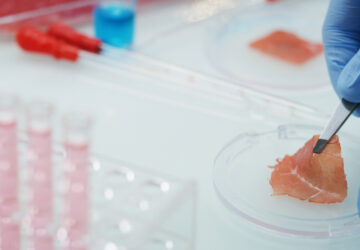Animal-rights activists like to promote meatless diets by claiming all kinds of health benefits. But if you pay attention to the news this week, the research is showing exactly the opposite. Applied carelessly, vegetarianism doesn’t just carry risks for physical health – in the case of teenagers, it can be evidence of an eating disorder.
TIME magazine reports on a trend among teenagers who “go veg” not because of any save-the-cows ideology, but because they think such restrictive eating will help them lose weight. Relying on a new study published in the Journal of the American Dietetic Association, TIME outright calls it a “teen eating disorder.”
Then a recent study in Canada revealed alarming evidence that avoiding meat during pregnancy can lead to severe birth defects. From that article:
Now researchers are reporting that women who have low vitamin B12 levels shortly before and after they get pregnant are at significantly greater risk of delivering a child with a neural tube defect.
Vegans and women who eat little or no meat, fish, eggs, milk or cheese are at the highest risk, as well as women with stomach or intestinal problems, including inflammatory bowel disease, that keep them from absorbing enough B12.
The finding needs to be confirmed by more studies. But the researchers say women at risk should be tested for B12.
This begs the question of whether swearing off animal protein is really worth the potential risks to a baby’s health.
Finally, in another sign of nutritional deficiencies associated with a vegan diet, the journal Pediatrics just published a Weill Cornell Medical College study that showed how more and more children are at risk of rickets because of a lack of vitamin D, which is found in dairy and fish. This essential nutrient also protects against heart disease, diabetes, immune system problems, and inflammatory diseases, but researchers found that 14 percent of the teens studied weren’t getting enough vitamin D in their diet.
All of these stories confirm what we’ve been saying: Meat in moderation is good for health. But if an anecdotal argument is what sways you, just consider 115-year-old Gertrude Baines. The world’s oldest woman credits her long life to never smoking and a penchant for crispy bacon and hot dogs.




